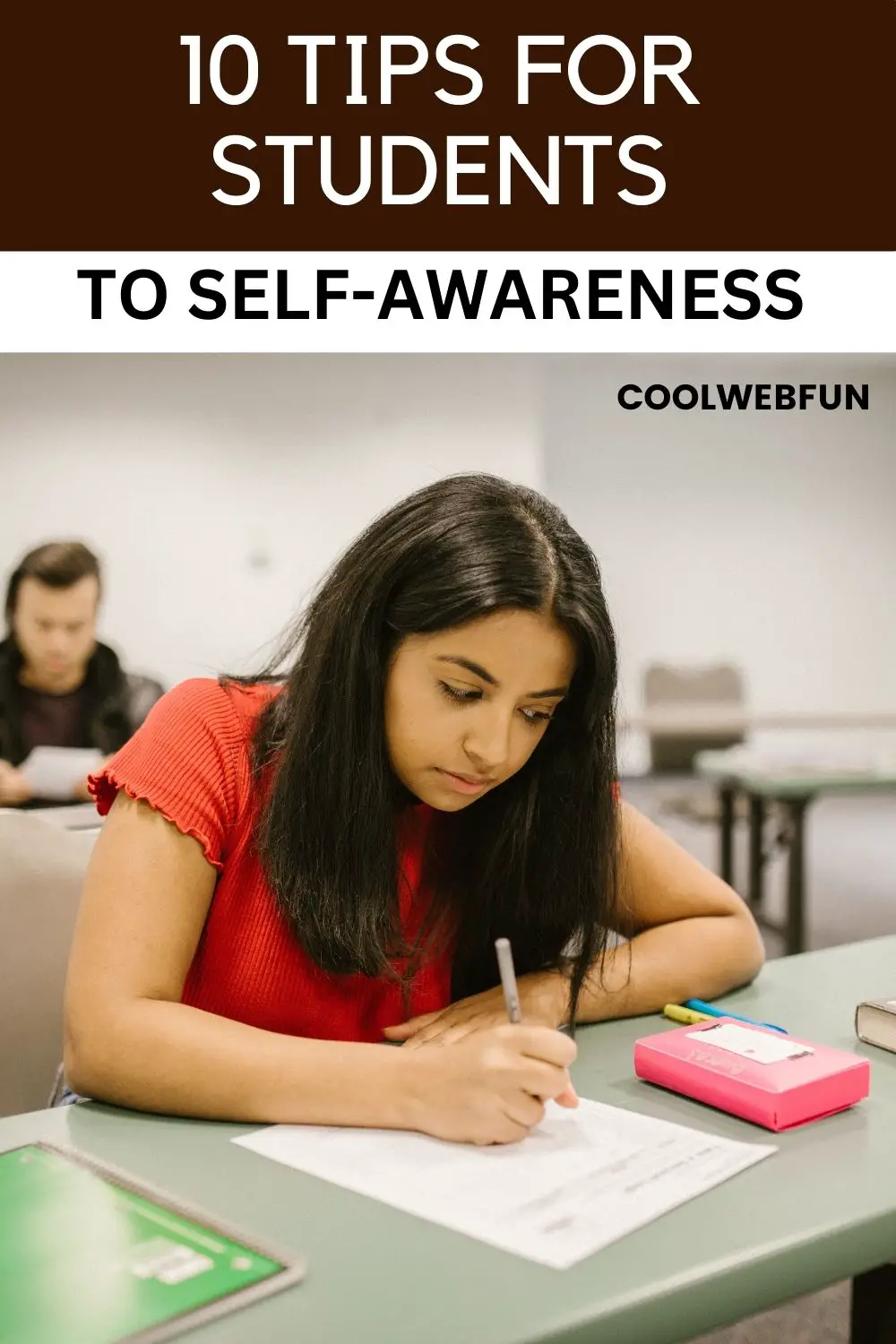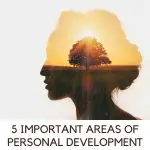Self-awareness is the foundation of personal growth, a critical aspect of human development that allows individuals to recognize their strengths, weaknesses, and limitations.
It is the ability to introspect and understand one’s emotions, thoughts, and behaviors, as well as how they impact oneself and others.
Self-awareness is not only essential for improving personal relationships and enhancing social skills but also for making better decisions and achieving success in all aspects of life.
It is an ongoing journey that requires mindfulness, reflection, and a willingness to explore oneself with honesty and openness.
In short, self-awareness is the key to unlocking the full potential of one’s life.

10 Tips for Students to Improve Self-Awareness
There are many personality assessments available online, such as the Myers-Briggs Type Indicator or the Big Five personality traits test.
These assessments can help students gain insight into their own behavior patterns and preferences.
1. Be honest with yourself
The first step to improving self-awareness is, to be honest with yourself.
This means taking a hard look at your strengths and weaknesses and admitting where you need to improve.
It can be difficult to do this, but it’s necessary if you want to make progress.
2. Set goals
Once you know where you need to improve, you can set goals for yourself. These goals should be specific and measurable so that you can track your progress.
Having goals will help keep you motivated and focused on improving self-awareness.
3. Pay attention to your thoughts and emotions

Self-awareness requires paying attention to your thoughts and emotions.
This means taking notice of what you’re thinking and feeling in different situations.
It can be helpful to keep a journal to track your thoughts and emotions over time.
4. Be mindful of your behavior
Your behavior is another important aspect of self-awareness.
Take notice of how you act in different situations and whether your behavior is consistent with your thoughts and emotions.
If not, this could be a sign that you need to improve your self-awareness.
5. Seek feedback from others
Getting feedback from others is a great way to improve self-awareness. Ask trusted friends or family members for their honest opinion of your strengths and weaknesses.
You can also seek feedback from professionals, such as a counselor or coach.
6. Observe yourself in different situations
Another way to improve self-awareness is to observe yourself in different situations.
This could involve keeping a diary of your daily activities, taking notice of your behavior in social situations, or paying attention to your thoughts and emotions during challenging times.
7. Reflect on your experiences
Reflecting on your experiences is another key to improving self-awareness.
After a situation has occurred, take some time to think about what happened and how you felt.
This will help you to better understand yourself and your reactions in different situations.
8. Try new things
One way to increase self-awareness is to try new things.
This could involve taking up a new hobby, traveling to new places, or meeting new people.
Stepping outside of your comfort zone can help you to learn more about yourself.
9. Practice mindfulness:

Mindfulness is the practice of being present and aware of one’s thoughts and feelings without judgment.
Students can practice mindfulness through meditation, yoga, or simply taking a few deep breaths to refocus their attention.
10. Pay attention to body language
Becoming more aware of body language can help students understand how they present themselves to others and how others react to them.
My Take on Tips for Self-Awareness for Students:
Writing down thoughts and feelings in a journal can help students identify patterns and triggers in their emotions and behavior.
Recognizing that everyone makes mistakes and treating oneself with kindness and understanding can help reduce negative self-talk and build self-esteem.
And at last, sometimes, seeking professional help from a counselor or therapist can provide a safe space to explore one’s thoughts and emotions and gain greater self-awareness.
More Self-Development Methods:
- What are the 5 Most Important Areas for Self-Development?
- 7 Non-Negotiable Tips for Entrepreneurs
- How to improve your productivity?


